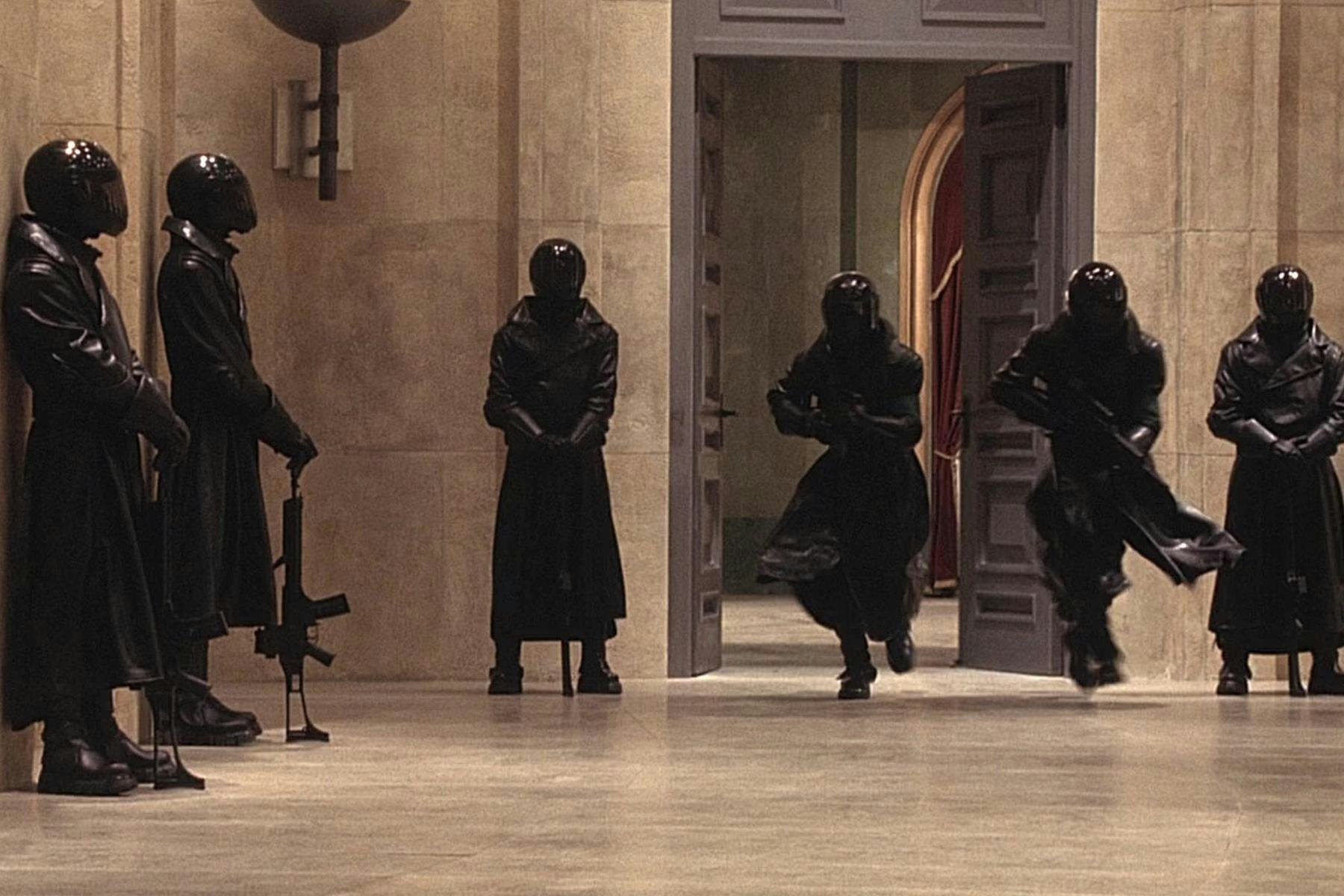
Dystopian stories appeal to a certain curiosity in many of us who wonder what the future holds — and the recognition that it might not be an improvement over the present. From The Matrix to 1984, these stories show us the worst-case scenario if we let technology or society get the better of us. And, more importantly, how such a disaster could be prevented.
In 2002, at the dawn of the 21st century, it seemed like a good time to introduce a new dystopian world to the big screen, one that blends some classic concepts with kickass action. Enter Kurt Wimmer’s cyberpunk dystopian blockbuster, Equilibrium.
When the survivors of WWIII emerge from the aftermath, the devastation is blamed on human emotion. So when a new city-state called Libria arises, its citizens are banned from exhibiting any emotion at all.
This means music, literature, art, games, decoration, and more are all banned. Libria’s citizens are also required to take a daily drug called Prozium to suppress their emotions.
Enforcing these rules are Libria’s deadly elite law enforcement officers, the Clerics. They are led by the city’s authoritarian figurehead, known only as “Father.”
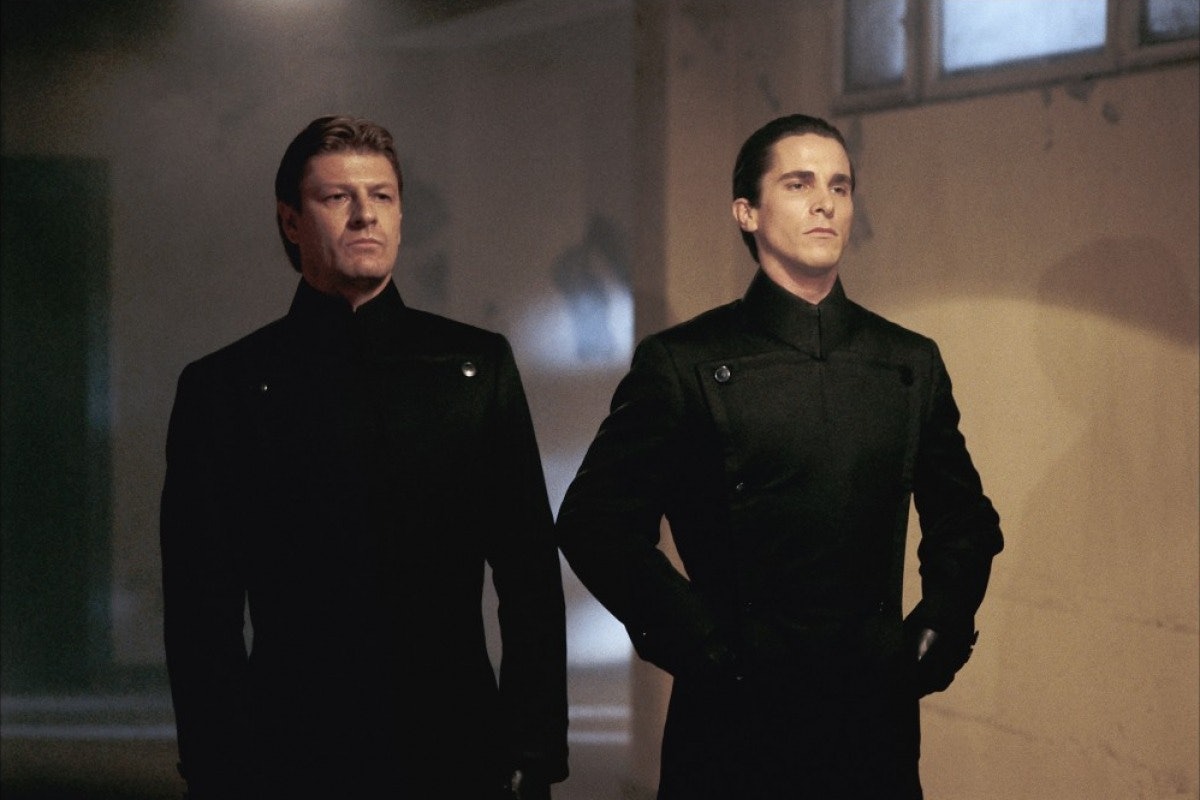
Christian Bale plays John Preston, a highly-ranked and respected Cleric in charge of hunting down and destroying contraband and executing “Sense Offenders.” Preston carries out his duties alongside his partner, Errol Partridge (Sean Bean). Oh, dear. How long is it going to be before we lose Sean Bean?
Not that long, actually. Roughly 20 minutes into the movie, Preston catches Partridge reading a poetry book and realizes his partner has stopped taking Prozium. Partridge tells Preston that he craves to feel emotions, no matter what the cost might be. Preston listens and responds to his long-time partner’s touching, heartfelt speech… by shooting him in the head.
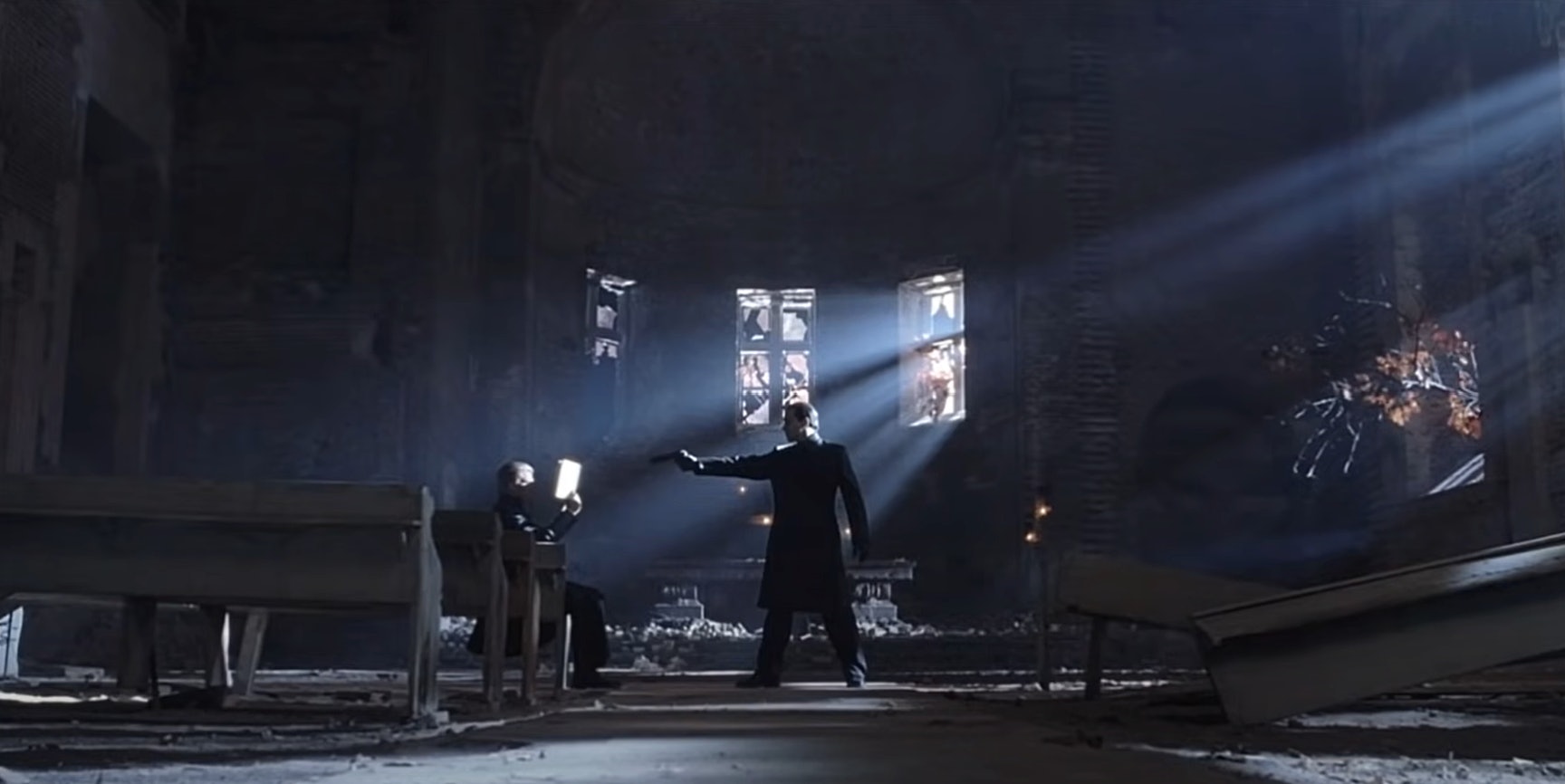
But the fateful morning comes when John Preston accidentally breaks his vial of Prozium and can’t get a replacement in time for work. Before long, Preston starts getting smacked in the face with unadulterated emotion.
Once he starts having feelings and memories (mostly of his deceased wife, who was executed as a “Sense Offender”), Preston doesn’t want to give them up. This leads him to continue skipping drug doses. Soon enough, he’s aiding the underground rebellion against “Father.”
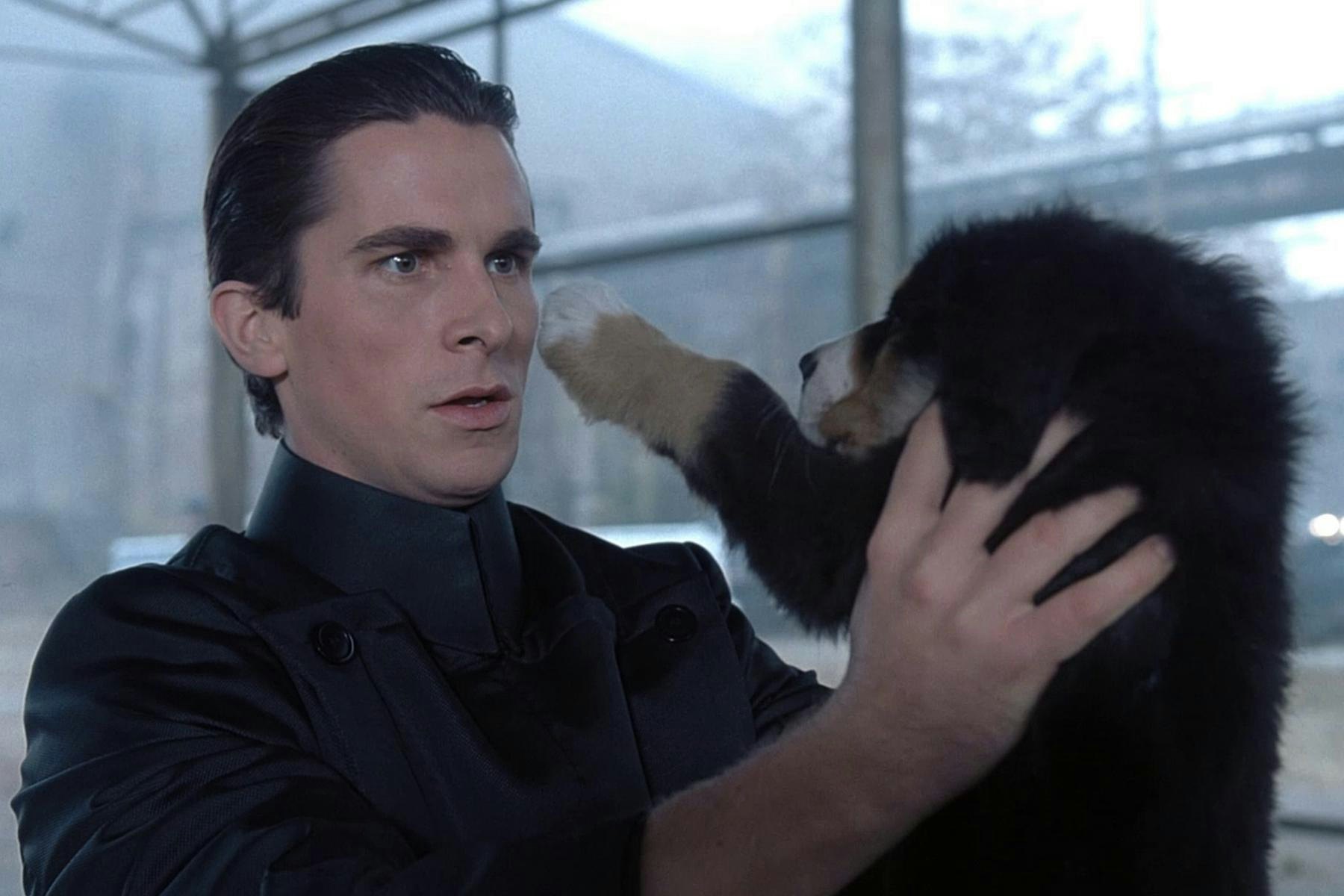
While the concept is intriguing, the way Equilibrium portrays human emotions, and their suppression is confusing and inconsistent. For example, after Preston frames another Cleric played by Taye Diggs as a Sense Offender, Diggs is dragged away to be punished. All the while, he’s shouting and screaming about how he isn’t experiencing any emotions.
It’s completely laughable. Anyone watching this scene would think, “Dude, you wanna yell a little louder to convince us that you’re not feeling anything?”
And just a few scenes later, this guy is grinning with unsuppressed glee while Preston is cornered by Father’s men.
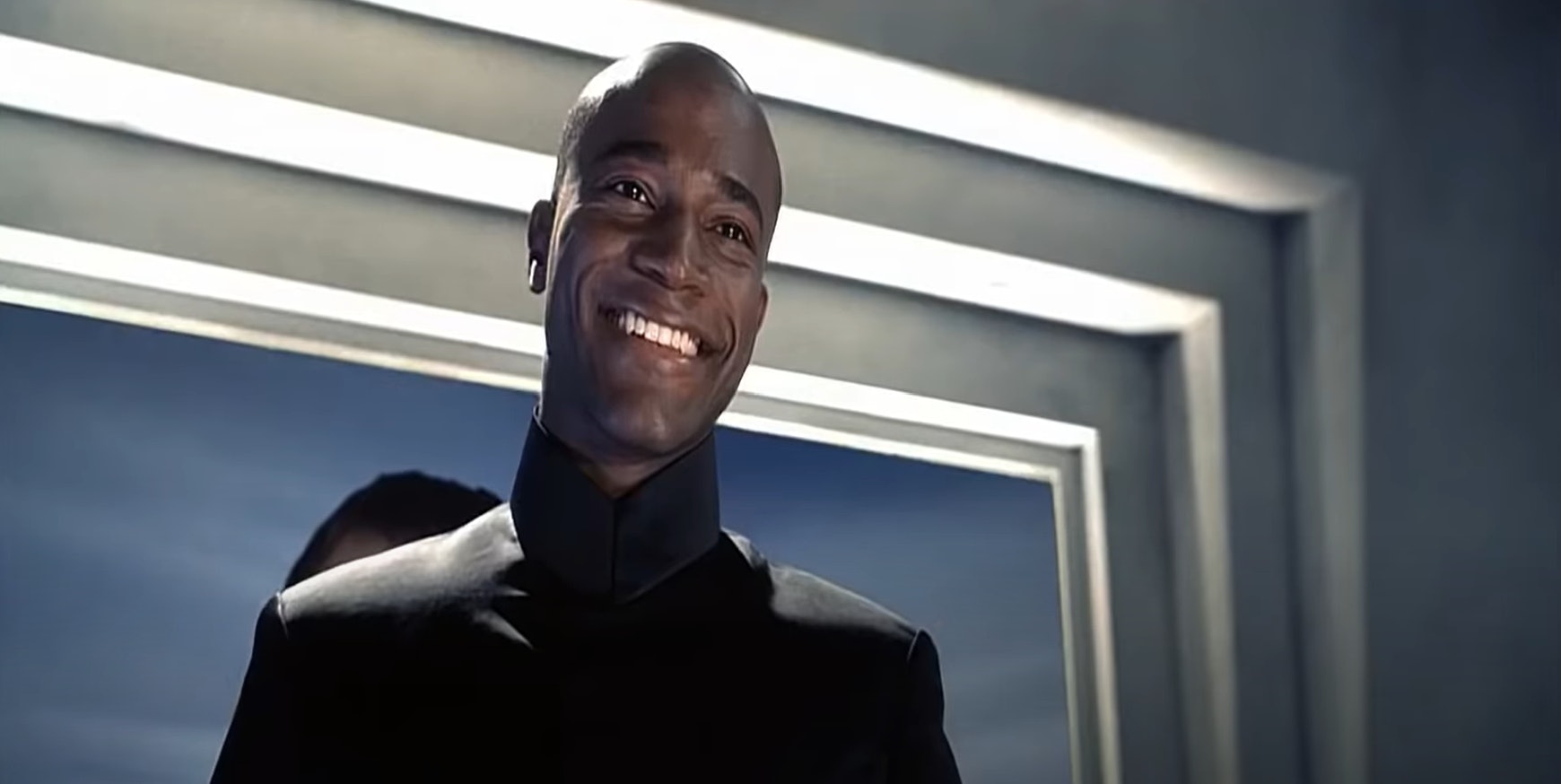
Equilibrium presents a highly oversimplified view of human emotion. People will always feel something, there’s no getting around that — even if that feeling happens to be numbness.
So even when they’re taking these emotion-suppressant drugs, the characters in this movie still express some kind of feeling. They ask questions, indicating curiosity or inquisitiveness. They raise their voices. They’re forceful, confused, and frustrated. They apologize. They’re deferential, respectful, and polite.
These are all human emotions.
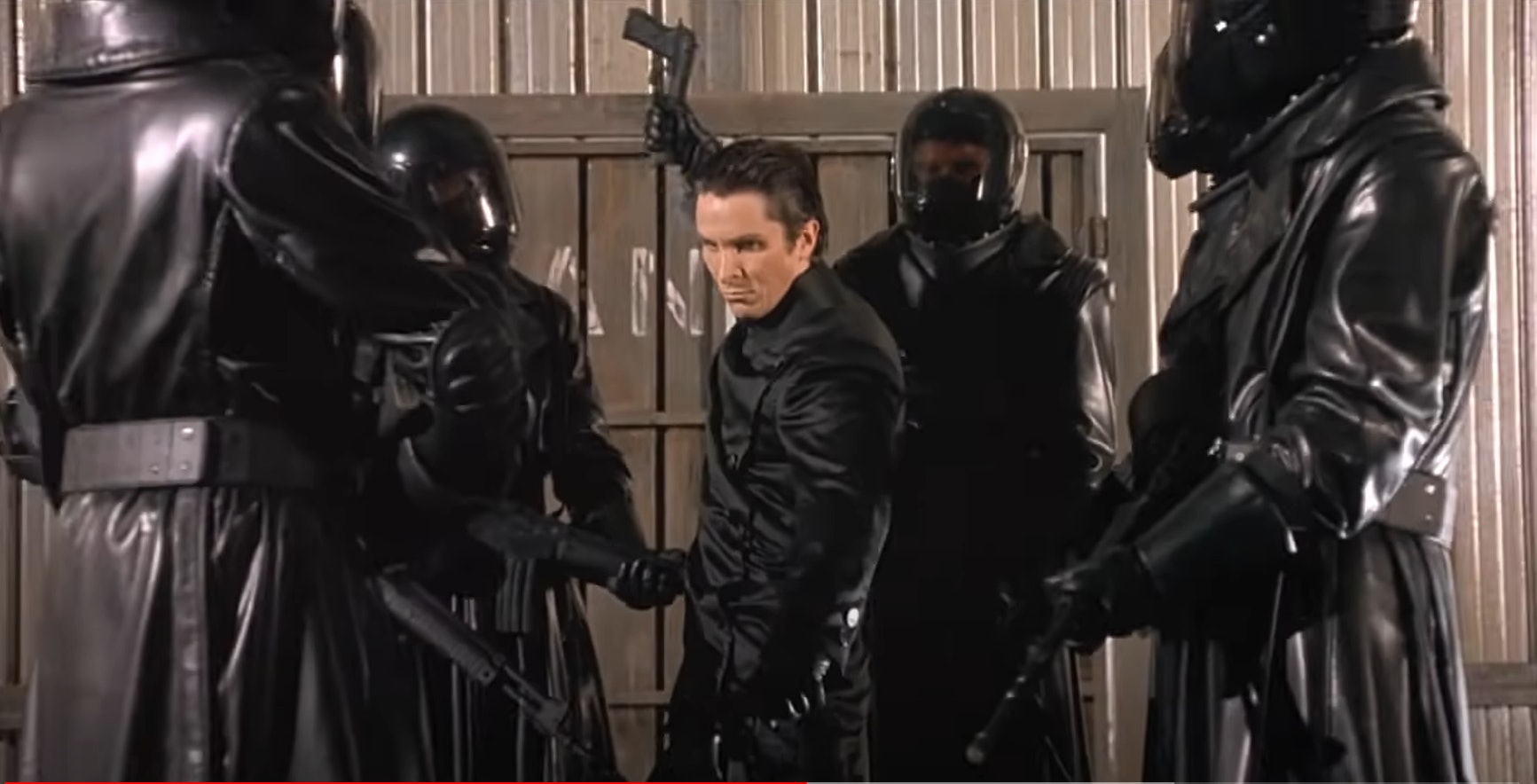
Preston and the other characters all state that with human emotions suppressed, there’s no crime and no murder. But that’s ridiculous because none of those things require human emotion. Equilibrium fails to explore or even address any of this.
Rather than suppressing emotions entirely, a better idea (and probably a more interesting one) would have been to explore which emotions are acceptable in this society and which are not. Feelings like joy, love, lust, and ecstasy, might be forbidden in Libria, but others like curiosity, rationality, and determination might be totally acceptable. Human emotion is too complex to be simplified in the way the movie is showing us.
Equilibrium isn’t really giving us a new story. We’ve seen dystopian stories like this before. Stories like Brave New World, 1984, Fahrenheit 451, and even Blade Runner and The Matrix are far more developed and complex than Equilibrium.
Equilibrium basically tried to give us a new futuristic dystopian world for the 21st century, but at its, core, it’s really quite shallow. If you enjoy dystopian action movies, you might enjoy this one for its well-choreographed action scenes and special effects, but most of what the movie has to offer is style as opposed to any genuine substance.
Equilibrium is streaming on HBO Max until Oct. 31.







